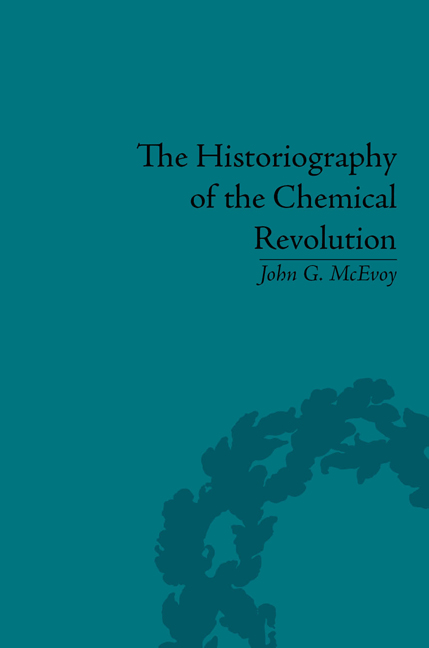Book contents
- Frontmatter
- CONTENTS
- Dedication
- Acknowledgements
- Preface
- Introduction: The Philosophical and Historiographical Terrain
- 1 Positivism, Whiggism and the Chemical Revolution
- 2 Postpositivism and the History of Science
- 3 Postpositivist Interpretations of the Chemical Revolution
- 4 From Modernism to Postmodernism: Changing Philosophical Images of Science
- 5 The Sociology of Scientific Knowledge and the History of Science
- 6 Postmodernist and Sociological Interpretations of the Chemical Revolution
- 7 The Chemical Revolution as History
- Notes
- Works Cited
- Index
Preface
- Frontmatter
- CONTENTS
- Dedication
- Acknowledgements
- Preface
- Introduction: The Philosophical and Historiographical Terrain
- 1 Positivism, Whiggism and the Chemical Revolution
- 2 Postpositivism and the History of Science
- 3 Postpositivist Interpretations of the Chemical Revolution
- 4 From Modernism to Postmodernism: Changing Philosophical Images of Science
- 5 The Sociology of Scientific Knowledge and the History of Science
- 6 Postmodernist and Sociological Interpretations of the Chemical Revolution
- 7 The Chemical Revolution as History
- Notes
- Works Cited
- Index
Summary
In 1989 Francis Fukuyama famously proclaimed the ‘end of history’. Expressing the unalloyed triumphalism of American liberalism at the end of the Cold War, Fukuyama's controversial declaration also gave voice to postmodernist aspirations to escape from the fixed identities, traditions and institutions of the past and live in a pluralistic present of self-fashioning and unfettered desire. This aspiration seemed to place in jeopardy humanity's historical sense, threatening an unexpected nihilistic outcome to twentieth-century debates about the nature and significance of that sense and its place in the formation and maintenance of social ties and cultural bonds. In an important paper of 1976, the British historian Lawrence Stone examined these debates from the perspective of the professional historian. His tone was both celebratory and cautionary. While looking to the future with diminished expectations and some apprehension, Stone identified the ‘new history’ of the previous forty years as a period of unsurpassed creativity ‘in the whole history of the profession’, brought on by ‘borrowings from the social sciences’. The interaction between the traditional narrative form of history, professionalized between 1870 and 1930, and the neighbouring disciplines of sociology, anthropology, economics, psychology and demography issued in the formation of new fields of historical inquiry, including demographic, cultural and social histories, as well as histories of mass culture, science and the family, which, at the time of Stone's writing, were still in ‘their heroic phase of primary exploration and rapid development’.
- Type
- Chapter
- Information
- The Historiography of the Chemical RevolutionPatterns of Interpretation in the History of Science, pp. x - xivPublisher: Pickering & ChattoFirst published in: 2014



